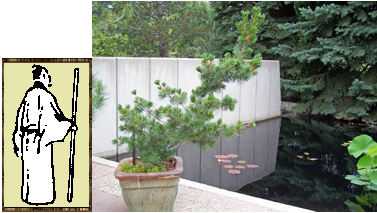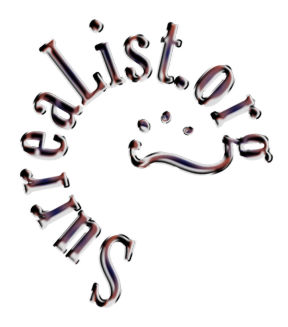
Hexagram Fifty-six—Traveler
Hexagram Fifty-six discusses traveling. While visiting a land where one is a stranger, maintain humility, integrity, and an open heart. Try not to judge the surroundings or the local inhabitants.
The first line, yin, shows a hostile stranger who only brings more bad fortune upon themself.
The second line, yin, shows a traveler coming to rest at an inn. Although there are servants, this person takes care of their own needs. This creates an aura of respect for the traveler.
The third line, yang, shows one who is disrespectful to hosts, thus losing the respect of everyone. The image is of a traveler setting fire to the inn.
The fourth line, yang, explains that the subject can feel at home wherever they are. The example is a traveler who brings along their means of livelihood, but still feels dissatisfaction of heart.
The fifth line, yin, explains that one must take risks to become successful. The example is when shooting a pheasant, one's arrow is lost. Still, the higher goal will be reached.
The sixth line, yang, warns against losing one's equilibrium while traveling. The example is that the traveler laughs and then cries upon seeing a bird set fire to its nest. Expect the unexpected and don't be thrown off guard.
Hexagram Fifty-six Commentary
This hexagram discusses travel, and the best attitudes a traveler can take while on the road. The introduction begins with advice while visiting places where one is a stranger: "maintain humility, integrity, and an open heart." It also warns not to judge the local people.
The first line, yin, is of a hostile traveler who offends the people they meets. This just makes it worse for the traveler.
The second line, yin, is of a traveler who checks into an inn. This person is self-sufficient and courteous. Everyone respects a person like this.
The third line, yang, describes the hostile traveler who disrespects the hosts, losing everyone's respect. The metaphor is of setting the inn on fire, injuring him/herself and others.
The fourth line, yang, reminds the traveler to remain in the present moment, and to feel at home wherever their travels take them. However, it is a difficult task, and the metaphor is of "the traveler who brings along their means of livelihood, but still feels dissatisfaction of heart." Travel is not as easy as it looks, and it is common to feel homesick. People naturally feel better at home, or in places that feel like home. This line reminds the traveler it is possible to feel at home anywhere.
The fifth line, yin, promotes the idea of travel when necessary, even though it involves risk. The metaphor is that when shooting at a pheasant, the arrow may get lost. That's okay, because risks involved in travel may be necessary to reach a higher goal.
The sixth line, yang, warns the traveler to keep their equilibrium while on the road. The example is of an unexpected tragedy, where "the traveler laughs then cries upon seeing a bird set fire to its nest." The subtext is to expect the unexpected and try to remain undisturbed.
To the reader: Most of the hexagrams have at least one line that predicts bad results, but that does NOT mean you are fated to that result. The hexagrams illustrate different attitudes, so study the actions and reactions to learn the attitudes that will lead to better outcomes.
The I Ching teaches you to flow with changes and create positive change from the inside through conscious living. Your future is in your hands. Consult the I Ching for ideas that lead to clear thinking and positive mental attitude. Reading the I Ching helps you take the time to reflect on your attitudes and ideas. Continue asking until you feel positive about your course.

Click here for another hexagram.
A note about this interpretation of the I Ching: Nori Muster wrote this version of the I Ching in 1994 and put it online at Surrealist.org in 2000. It is also available at Amazon:
e-book
paperback
